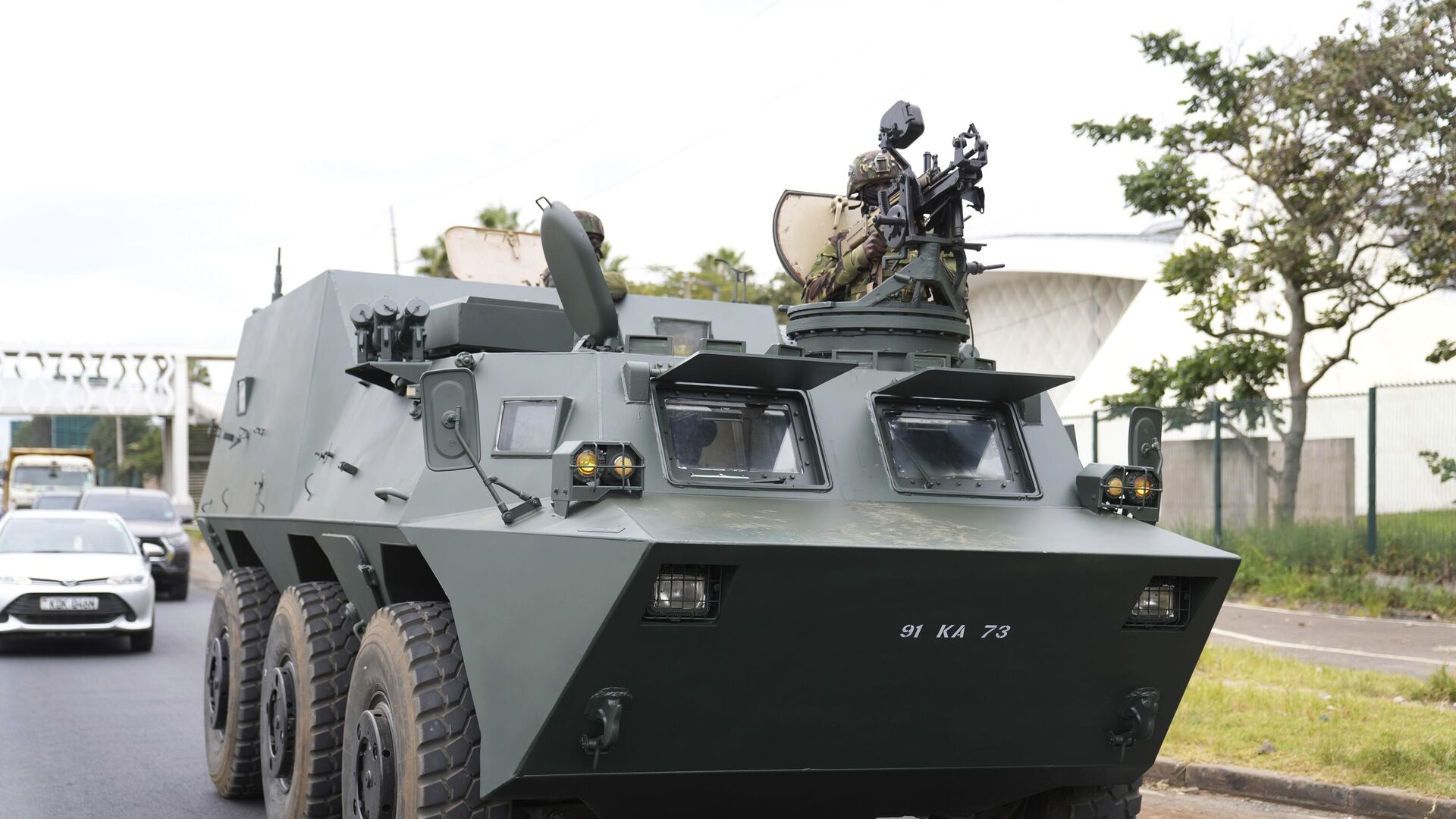https://en.sputniknews.africa/20240628/1067286026.html
Kenya's High Court Greenlights Military Intervention to Quell Violent Protests
Kenya's High Court Greenlights Military Intervention to Quell Violent Protests
Sputnik Africa
Tax reforms were implemented by Kenyan authorities in response to the International Monetary Fund's (IMF's) request to decrease the budget deficit from 5.7% to... 28.06.2024, Sputnik Africa
2024-06-28T18:22+0200
2024-06-28T18:22+0200
2024-07-01T15:57+0200
sub-saharan africa
kenya
east africa
william ruto
international monetary fund (imf)
protests
taxes
legislation
court
military
https://cdn1.img.sputniknews.africa/img/07e8/06/1c/1067286828_0:0:3072:1728_1920x0_80_0_0_b7eb059727bb12a0c2dfb624467fed36.jpg
Kenya's High Court approved military deployment to quell violent anti-tax protests overwhelming police, citing loss of control and endangerment of life and property. This decision followed a petition by the Law Society of Kenya (LSK); a detailed ruling is expected within two days.The ruling comes following a notice by Cabinet Secretary Ministry of Defense Aden Duale, who announced the military deployment on Tuesday. Duale justified the action as a response to the security emergency caused by violent protests.However, LSK lawyer Chrysostom Xavier Akhaabi criticized the rapid deployment, arguing that Duale had not provided a detailed justification for using military forces against unarmed civilians.Protests have persisted in Kenya since last week, when authorities unveiled a measure that would impose a 16% VAT on bread, sugar transportation, mobile and financial services, and foreign currency transactions, as well as a 2.5% excise on vehicles and vegetable oil. The measure was returned to parliament for further consideration by President William Ruto, who declined to ratify it as protests intensified.
kenya
east africa
Sputnik Africa
feedback@sputniknews.com
+74956456601
MIA „Rossiya Segodnya“
2024
News
en_EN
Sputnik Africa
feedback@sputniknews.com
+74956456601
MIA „Rossiya Segodnya“
Sputnik Africa
feedback@sputniknews.com
+74956456601
MIA „Rossiya Segodnya“
kenya, east africa, william ruto, international monetary fund (imf), protests, taxes, legislation, court, military, defense, defense ministry, defense minister, police
kenya, east africa, william ruto, international monetary fund (imf), protests, taxes, legislation, court, military, defense, defense ministry, defense minister, police
Kenya's High Court Greenlights Military Intervention to Quell Violent Protests
18:22 28.06.2024 (Updated: 15:57 01.07.2024) Tax reforms were implemented by Kenyan authorities in response to the International Monetary Fund's (IMF's) request to decrease the budget deficit from 5.7% to 3.3% of GDP. This prompted nationwide protests, which resulted in the fatalities of at least 25 individuals and the injuries of 67 others, according to media reports.
Kenya's High Court approved military deployment to quell violent anti-tax protests overwhelming police, citing
loss of control and endangerment of life and property. This decision followed a petition by the Law Society of Kenya (LSK); a detailed ruling is expected within two days.
The ruling comes following a notice by Cabinet Secretary Ministry of Defense Aden Duale, who
announced the military deployment on Tuesday. Duale justified the action as a response to the security emergency caused by violent protests.
"We shall preserve peace and public safety and protect critical infrastructure of all three arms of Government," he said in the statement.
However, LSK lawyer Chrysostom Xavier Akhaabi criticized the rapid deployment, arguing that Duale had not provided a detailed justification for using military forces against unarmed civilians.
"The deployment of the KDF to manage unarmed civilians is a disproportionate response that violates both national and international legal standards,” Akhaabi said quoted by local media.
Protests
have persisted in Kenya since last week, when authorities unveiled a measure that would impose a 16% VAT on bread, sugar transportation, mobile and financial services, and foreign currency transactions, as well as a 2.5% excise on vehicles and vegetable oil. The measure was returned to parliament for further consideration by President William Ruto, who declined to ratify it as protests intensified.

